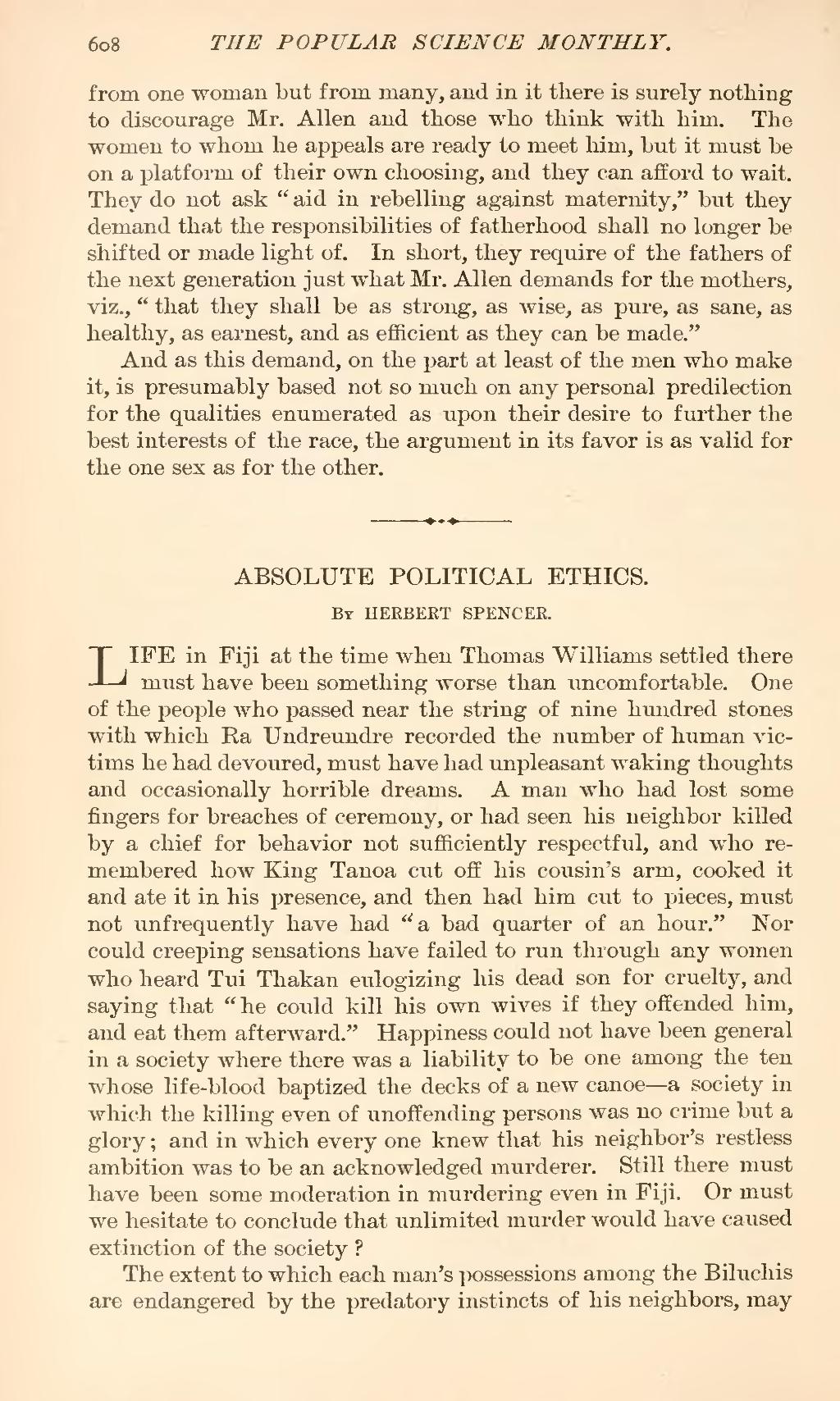from one woman but from many, and in it there is surely nothing to discourage Mr. Allen and those who think with him. The women to whom he appeals are ready to meet him, but it must be on a platform of their own choosing, and they can afford to wait. They do not ask "aid in rebelling against maternity," but they demand that the responsibilities of fatherhood shall no longer be shifted or made light of. In short, they require of the fathers of the next generation just what Mr. Allen demands for the mothers, viz., "that they shall be as strong, as wise, as pure, as sane, as healthy, as earnest, and as efficient as they can be made."
And as this demand, on the part at least of the men who make it, is presumably based not so much on any personal predilection for the qualities enumerated as upon their desire to further the best interests of the race, the argument in its favor is as valid for the one sex as for the other.
| ABSOLUTE POLITICAL ETHICS. |
By HERBERT SPENCER.
LIFE in Fiji at the time when Thomas Williams settled there must have been something worse than uncomfortable. One of the people who passed near the string of nine hundred stones with which Ra Undreundre recorded the number of human victims he had devoured, must have had unpleasant waking thoughts and occasionally horrible dreams. A man who had lost some fingers for breaches of ceremony, or had seen his neighbor killed by a chief for behavior not sufficiently respectful, and who remembered how King Tanoa cut off his cousin's arm, cooked it and ate it in his presence, and then had him cut to pieces, must not unfrequently have had "a bad quarter of an hour." Nor could creeping sensations have failed to run through any women who heard Tui Thakan eulogizing his dead son for cruelty, and saying that "he could kill his own wives if they offended him, and eat them afterward." Happiness could not have been general in a society where there was a liability to be one among the ten whose life-blood baptized the decks of a new canoe—a society in which the killing even of unoffending persons was no crime but a glory; and in which every one knew that his neighbor's restless ambition was to be an acknowledged murderer. Still there must have been some moderation in murdering even in Fiji. Or must we hesitate to conclude that unlimited murder would have caused extinction of the society?
The extent to which each man's possessions among the Biluchis are endangered by the predatory instincts of his neighbors, may
